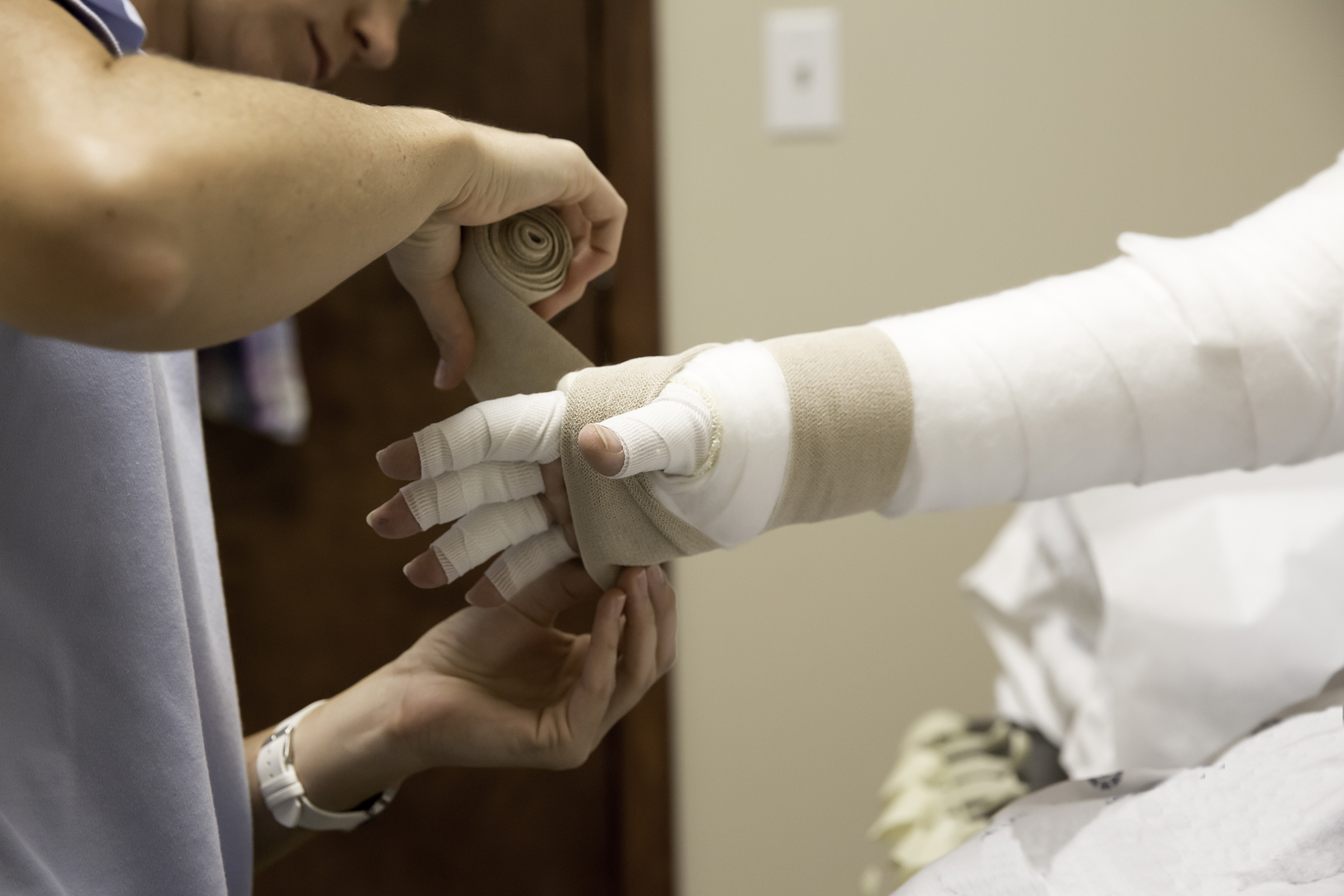Uncover the hidden connections between your family's past and your future well-being as we delve...
Read More

Lymphedema, a condition where lymphatic flow is blocked and swelling occurs as a result, commonly affects cancer patients. But there is a unique link between lymphedema and breast cancer specifically: it is particularly common for those with breast cancer because lymph nodes are often removed or treated with radiation.
If left untreated, lymphedema can cause extreme swelling, permanent skin damage, scarring in the afflicted area and in rare cases, lymphangiosarcoma—rare soft tissue cancer. But lymphedema can occur months or even years after lymph nodes are treated—which means it’s vital that providers conduct regular physical exams of the arm and breast to help detect lymphedema.
“Breast cancer-related lymphedema is often missed because the swelling is limited to the breast or it gets perceived as just typical post-operative or post-radiation swelling. But assuming this can be very dangerous for the patient,” said Nandini Kulkarni, M.D., medical director of Surgical Oncology for Inspira Health and clinical assistant professor of surgery for Rowan University.
Symptoms of lymphedema among breast cancer patients include:
Aside from diagnosing patients after seeing physical symptoms, an innovative tool is now helping Inspira providers detect lymphedema earlier. ImpediMed's SOZO device gives a patient’s L-Dex score—the amount of extraneous fluid in an at-risk extremity compared to a non-afflicted limb.
“Patients receive an L-Dex score reading preoperatively, one month postoperatively and then at every subsequent follow up,” said Dr. Kulkarni. “The benefit of using the L-Dex score is that we can now closely and consistently monitor our patients. That way if we notice any changes, we can move our patient swiftly into treatment.”
“Patients have the most success at slowing the progression of lymphedema when it is caught early. Once lymphedema is diagnosed, it cannot truly be cured; however, it can be controlled and managed,” said Dr. Kulkarni. Managing lymphedema requires a tailored approach for each patient, but one key for all patients with lymphedema is protecting the extremity from injury, sunburn and heat, as well as avoiding tight clothes and jewelry. For patients diagnosed with lymphedema, the best treatments include:
“The most important thing we can do as providers is educate patients about what to expect. We need to teach them not only how to take care of themselves, but also monitor them from a baseline prior to surgery and postoperatively,” said Dr. Kulkarni. “Quick identification and quick intervention is the key.”
Now, patients have immediate access to their health care team and lymphedema care plan, like recommended exercises, through the MyInspira app. For more information, or to speak with Dr. Kulkarni, go to www.InspiraHealthNetwork.org or call 856-641-8635.

Uncover the hidden connections between your family's past and your future well-being as we delve...
Read More
Treating cancer requires an arsenal of tools and preventive measures. Explore the power of...
Read More
President & CEO Amy Mansue attended Inspira's Cancer Survivors Day event, organized by our Cancer...
Read More
The material set forth in this site in no way seeks to diagnose or treat illness or to serve as a substitute for professional medical care. Please speak with your health care provider if you have a health concern or if you are considering adopting any exercise program or dietary guidelines. For permission to reprint any portion of this website or to be removed from a notification list, please contact us at (856) 537-6772